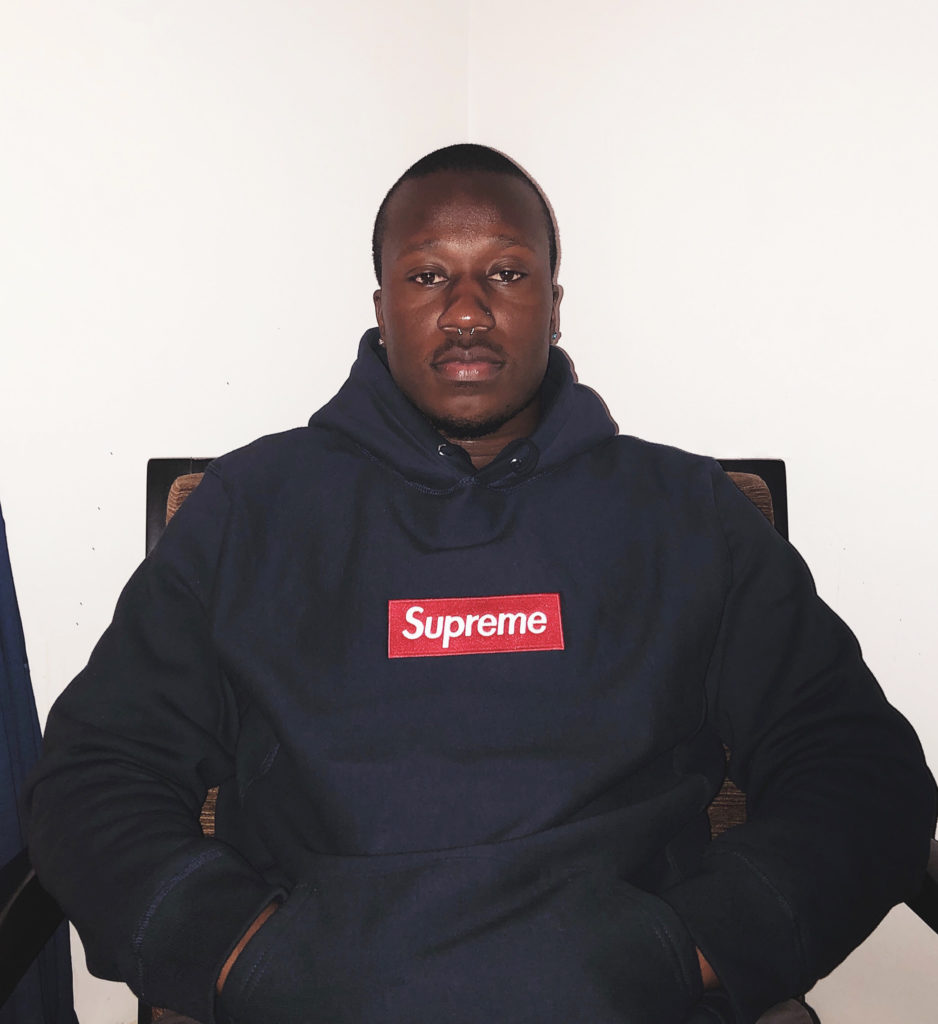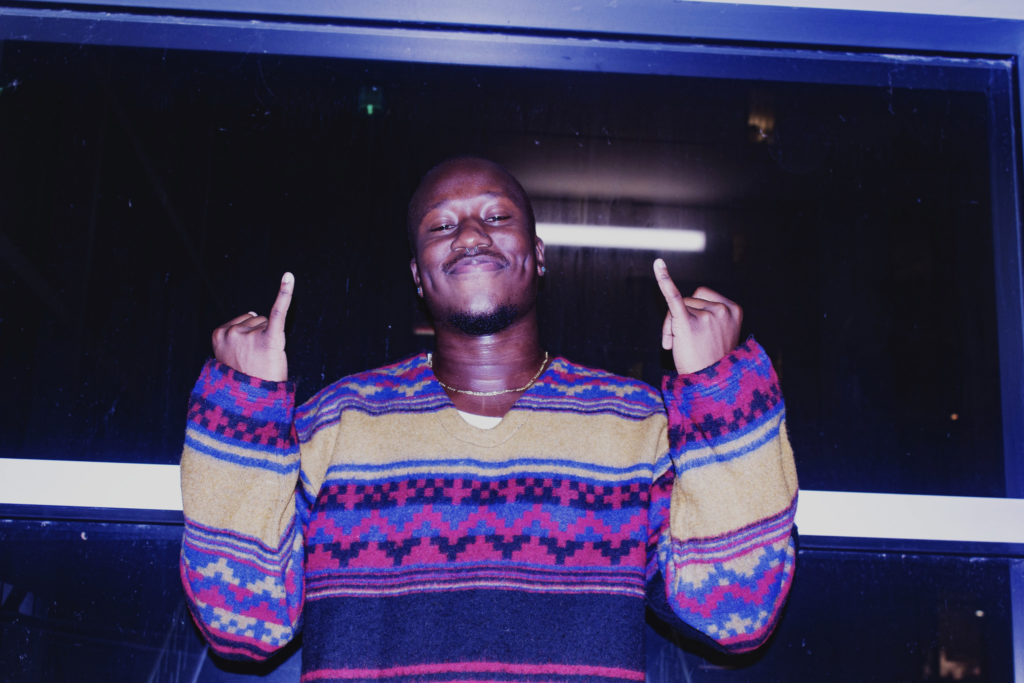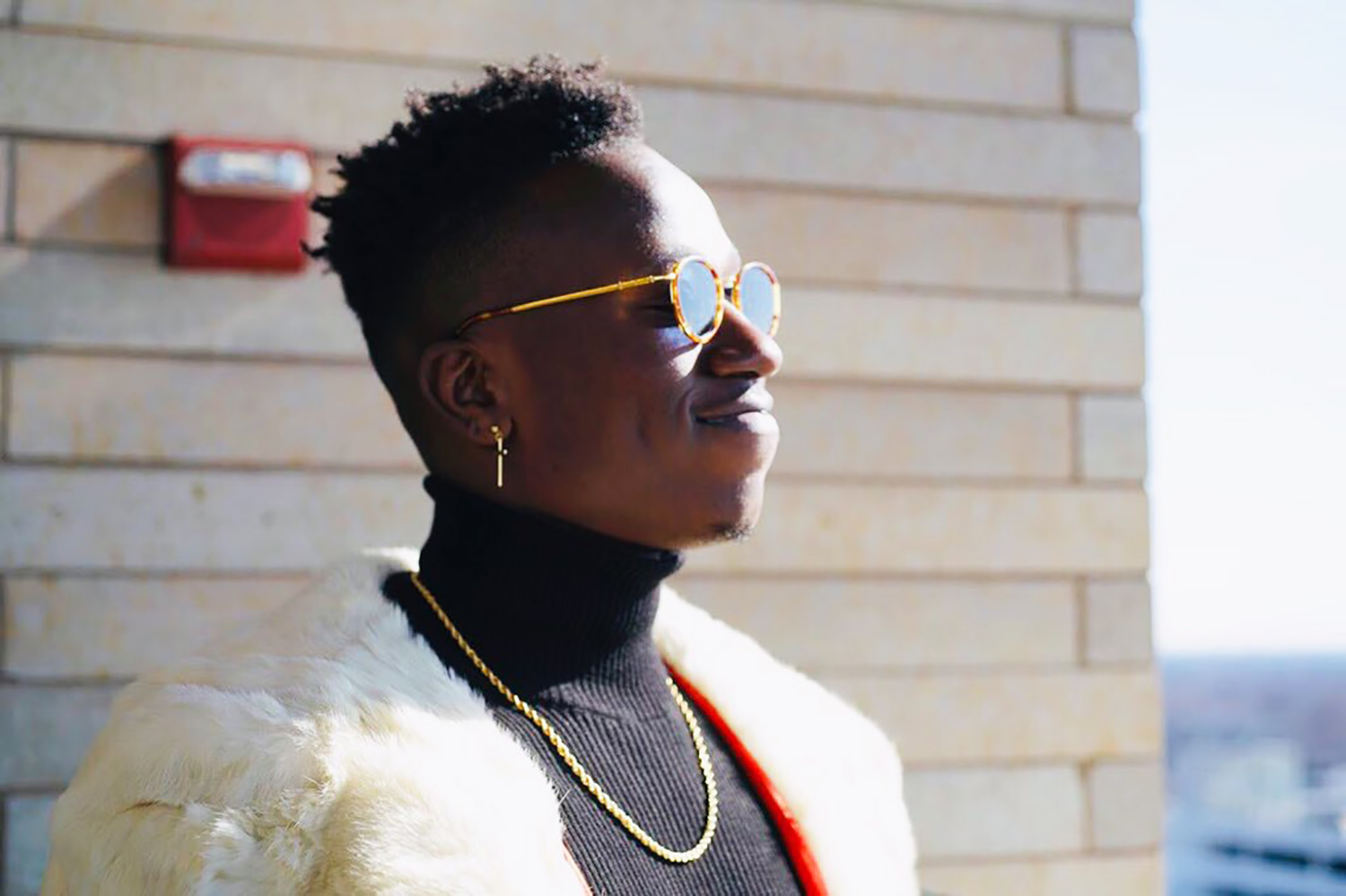As COVID-19 began to worsen in March, twenty-three-year-old Ben Glover, who raps under the moniker Blvck Svm, was on a countdown clock. Governor Pritzker’s stay-at-home order closed the gym where Glover worked, cutting off his main source of income and forcing him to consider moving back in with family near West Palm Beach, Florida. Still living in Hyde Park nearly two years after graduating from the University of Chicago, Glover was in the process of buying GRE prep books and contemplating whether he really wanted to continue pursuing music full time.
He was stuck at 300 monthly listeners on Spotify and losing money on social media promotion every time he put out a song. But he decided to give it a shot. The strategy? Release bi-weekly singles on all streaming platforms to what he describes as the most captive music listening audience in recent memory. Glover thought if he was going to “make something shake,” this would be the moment. That first single, “Bleach” released on March 19, was the one that landed, initially reaching 15,000 streams on Spotify in its first month and over a half a million as of press time. Glover said “Bleach” went on to become his first song to crack 100,000 streams, thanks in part to Spotify’s Discover Weekly playlist.
For Glover, growing as an artist in a year marked by a pandemic and political activism makes sense. Majoring in critical race and ethnic studies, Glover wrote his thesis on why white people like trap music. Today, he’s organizing resource guides and interweaving thoughts on prison abolition and mutual aid into his rhymes. Glover said he is taking this moment with seriousness and optimism to create the music that he is proud of. As he raps in his song “Supercomputer,” “Quarantine really pushed me to the brink and it worked.”
Growing up near West Palm Beach, Glover enjoyed rapping for fun with his friends throughout high school. “I performed freestyle Fridays for my homies at lunch but I never had an official performance,” he said on a Zoom call from his apartment in Hyde Park. “I was just doing it for fun every Friday.” At the time, his closest friend Jawanza Ingram, now a producer who goes by Sheri A, didn’t think much of the casual, fun rhyming. During lunch at Heritage High School, Sheri would see Glover doing percussion, “beating on tables, rapping,” he said. “I didn’t know it was serious for him at the time, and it really was. And he made it serious.”
Almost immediately after Glover arrived at UofC for his freshman year in October 2014, he took the jump to perform publicly for the first time at a hip hop poetry slam at the Logan Center. A shy and reserved first-year, he stepped on stage and wanted to hear what people who weren’t his friends thought of his music. “I didn’t realize that I should have had my lyrics memorized so I showed up with sheets of paper,” he said. “The thing I can remember the most is shaking like a leaf when I was up there. At points, I could barely read what I had typed up because my hands were shaking so much.” That night, Glover placed third behind two student rappers who had significantly more experience than he did. The experience made Glover “hungry to perform more and to write more and just get better overall.” The bar that gave him the biggest applause during his first performance? “He ain’t doing shit like Clarence Thomas.”

Glover’s politics were present in his bars from the beginning. Right before he got to college, he was stopped and frisked for the first time back in Florida—a confrontation that he said left him questioning his place in society as a Black person. College gave him an opportunity to explore these thoughts, he said. “I was surrounded by a lot of people who were much smarter than I was who put me on game very quickly about a lot of different things: about gender, about sexual orientation, about mental health, about race,” he said. “I guess you don’t really think about how much you don’t know about race as a Black person. You just kind of live it.”
It was his curiosity about Blackness that kept him in school as opposed to dropping out and pursuing music full time during junior year after he declared his major. Glover’s thesis advisor, Allen Linton II, first met Glover on the basketball court at Ratner Athletics Center before he knew he would be working with Glover. “It was really cool to see this person in several different spaces and the centrality of his character,” Linton said. “His character [was] this engaging, fearless but deeply grounded and critical person whether it was idly talking shop at the basketball court, or working through centuries of racial differences when it comes to cultural consumption and engagement.“Ben’s a creative and he’s always thinking about himself and his story and the audience,” Linton said. “That was a way we connected on all the elements that he outlines [in his thesis]: tempo, lyrics—not just content of lyrics but delivery, the musical selection. Put all of those pieces and apply them to other spaces.”
The amalgamation of elements was his final thesis paper, entitled “From Minstrelsy to Migos: An Examination of White American Enjoyment of Trap Music.” It was a convergence of his identities as a Black person and rapper.
By February of 2018, Glover switched his stage name to Black Sam, later Blvck Svm (pronounced “Black Sam”), after the sixteenth-century African samurai Yasuke. Glover continued to pursue music as a full-time vision after graduating while balancing his job at a gym and staying in Hyde Park. He returned to campus a few months later for UofC’s Major Activities Board Fall Show in November of 2018, opening for Waka Flocka Flame. Before the pandemic, he was performing in clubs around the city and independently releasing EPs and songs semi-frequently.
For Glover, bringing in facets of critical theory and radical politics is a space where he feels he can continue to express himself in ways that go beyond the confines of normal conscious rap. This summer, amid protests in response to the police murders of Breonna Taylor, George Floyd, Tony McDade, and the white supremacist murder of Ahmaud Arbery, Glover felt he needed to adjust the schedule of his regular bi-weekly single releases. He knew he wanted to write something about this moment, but the last thing he wanted was to sound like most rappers making songs about political unrest. “I think most conscious rap is just really corny,” he said. “Nobody is talking about anything new. The beats are usually wack, they’re like pseudo-soulful. and whatever the rapper is saying is…it doesn’t necessarily have to be new information but I think it should be packaged in a way that at least makes it personal to that person. And it never is. It always sounds very contrived, and the reason I don’t really make music like that, and didn’t in the past, is because I didn’t want to sound like them.”
With this in mind, Glover spent two weeks writing what he says was the most difficult song he’s ever released, “Cloak.” He chronicles the horror of watching the video of George Floyd’s murder and how challenging it was to stay focused on anything as protests ensued. In under two and a half minutes, he criticizes Blackout Tuesday, advocates for donating to mutual aid funds, and points out the hypocrisy in denouncing rioting while remaining silent when police executions are happening. After writing and reaching out to friends for feedback, Glover released the song on all streaming platforms on June 26. “I sent it to a bunch of people, a bunch of my Black friends, and asked them if they thought it was too canned, [or] was worth putting out,” Glover said. “I got good responses from them, and so I ended up putting it out. and I’m glad I did because-not really because of the feedback, but because I proved to myself that I could make a song about serious topics that isn’t corny.”

Sheri said he sees Glover’s meticulous writing process first-hand whenever they work together. If Glover feels like a bar doesn’t fit in context or flow sonically in the verse, it doesn’t make the song. Once during a studio session, Sheri said Glover came prepared to write in iambic pentameter. “His poetry comes in really calculated, understandable ideas,” Sheri said.
Glover’s music has now become his main source of income. By the start of December, he had amassed more than 740,000 streams, over 174,000 listeners, and reached ninety-one countries in 2020, according to Spotify data he shared on Instagram. Although labels have approached him to secure a deal, Glover said he plans to independently drop a few more bi-weekly singles and release an EP titled Carpaccio on December 16. He wants to sell more features, “not worry about money anymore,” and, most importantly, continue to make music that “my parents are proud of, that my friends are proud of, and that people really like listening to.”
Noah Tesfaye is a Bay Area-born journalist, columnist at the Maroon student newspaper, and second-year at UofC studying political science and critical race and ethnic studies. This is his first piece for the Weekly.

